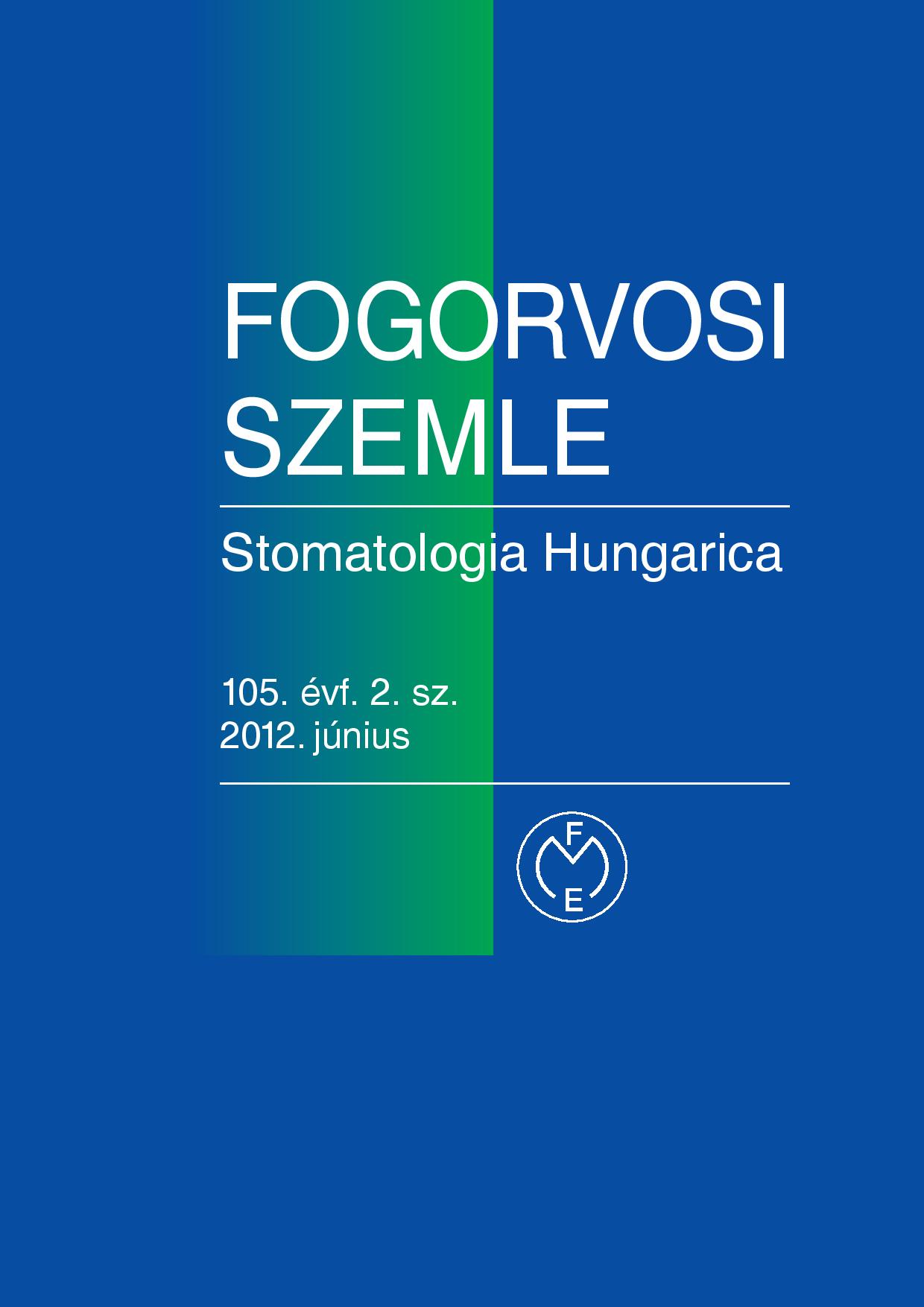Antikoaguláns kezelésben részesülő betegek szájsebészeti ellátásának klinikai vizsgálata
Absztrakt
Tartós alvadásgátló kezelés során is gyakran előfordul, hogy szájsebészeti beavatkozásokra van szükség. Dentoalveolaris sebészeti beavatkozások esetén ha a beteg INR értéke 2,0-3,0 közötti, nemzetközi ajánlások szerint nincs szükség a kumarin kihagyására. A vizsgálat célja egyrészt, hogy a nemzetközi irodalomban található irányelvek Magyarországon való bevezetésének lehetőségét feltérképezzék, másrészt, hogy a vérzés kockázatát a beavatkozás típusoknak, illetve kezelésnek megfelelően megbecsülhessék.
A műtét napján különböző alvadási paramétereket vizsgáltak a szerzők a betegeknél, és ezt követően vizsgálták ezeknek az esetleges klinikai komplikációkkal (szignifikáns vérzés, sebgyógyulási zavar, tromboemboliás szövődmények) való összefüggéseit.
Eddigi vizsgálataik megerősítették a bizonyítékokon alapuló, az irodalomban talált, javaslatokban szereplő feltételezéseket, hogy, a dentoalveolaris sebészeti beavatkozások nagy része a terápiás tartományú antikoaguláns kezelés mellett is elvégezhető.
Copyright (c) 2021 Szerzők

This work is licensed under a Creative Commons Attribution 4.0 International License.


.png)




1.png)



